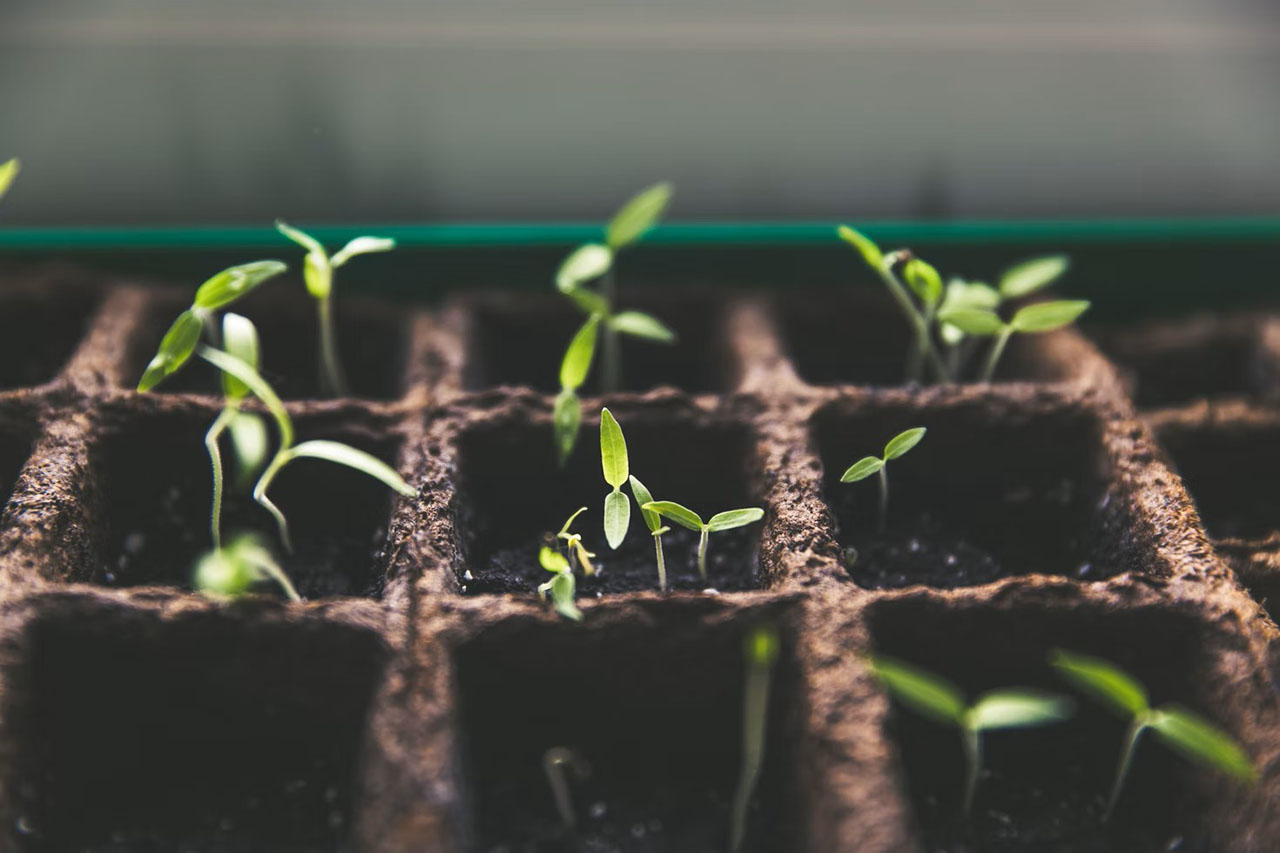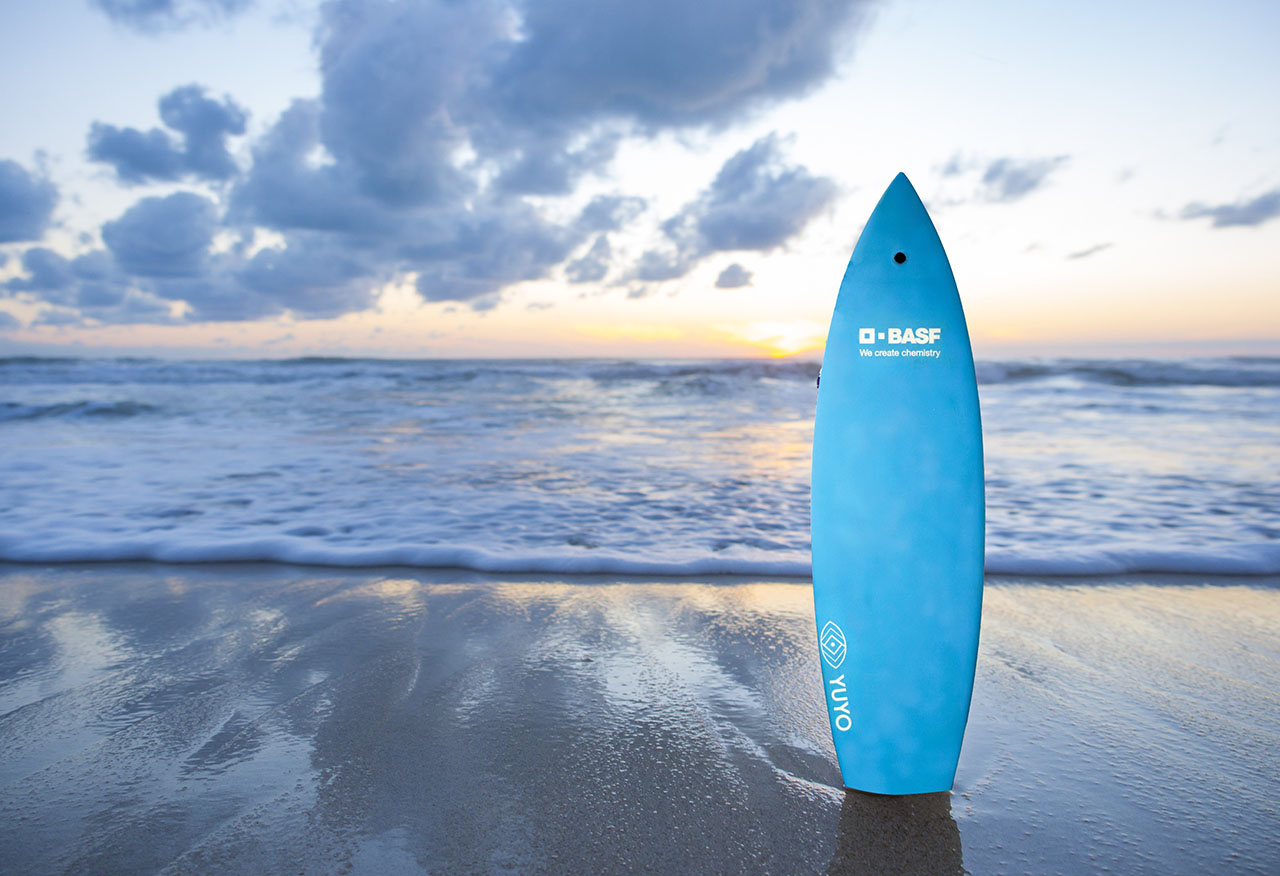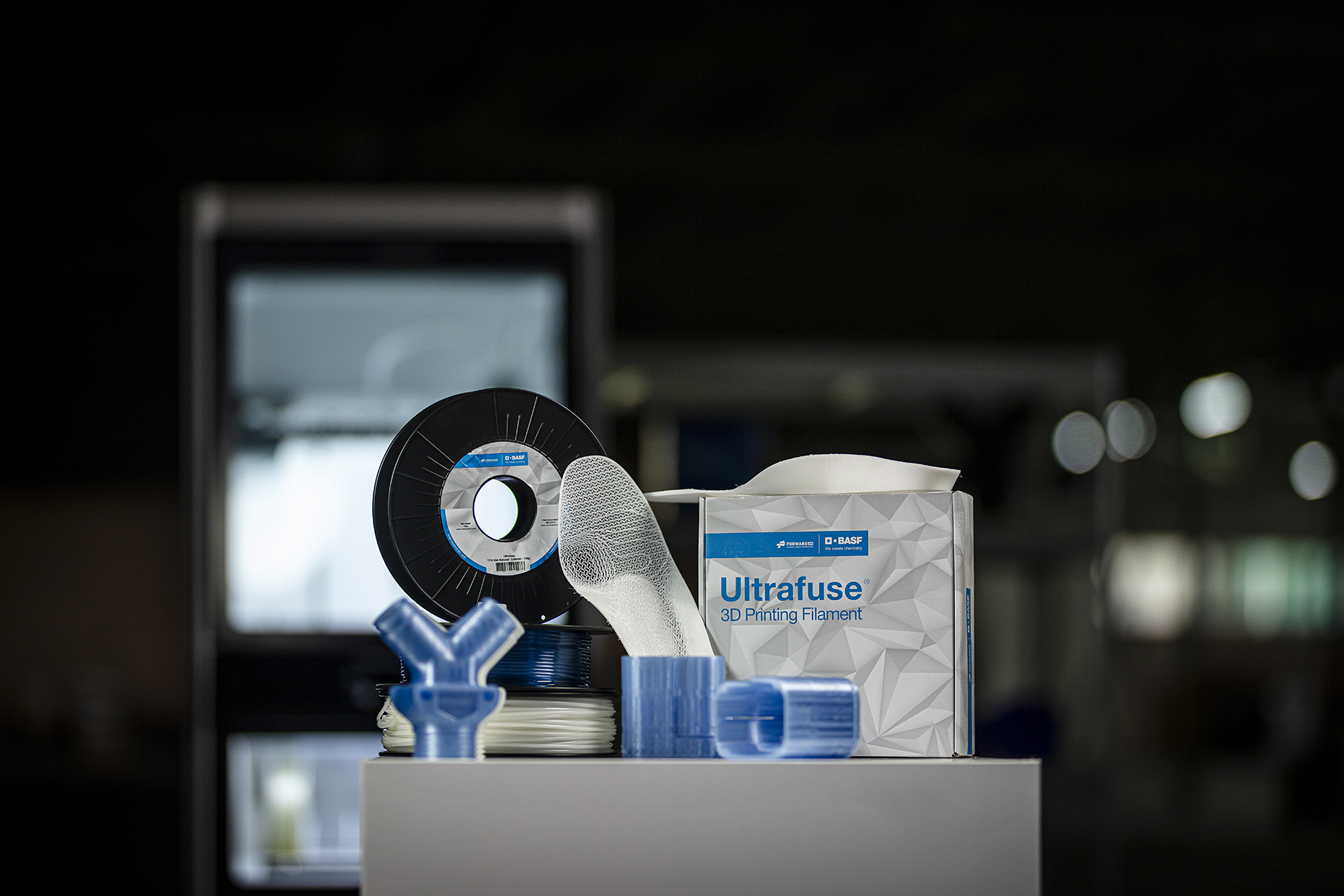
Discover how Sustainable our Filament Business Line really Is
At Forward AM, sustainability is an essential pillar in our company vision. We want to provide the best possible materials for your 3D printing projects while protecting our environment, the planet and future generations. Across all our business lines, whether it is powder bed fusion, photopolymer, or our filaments, a sustainable thought is implemented into all new and current projects. Ultrafuse® Filaments are in many ways sustainable pioneers at Forward AM. So, let’s take a look at the different measures, our filament experts took and will continue to take, to offer sustainable options within our Ultrafuse® line.
Vocabulary
It is not always easy to find the proper words, especially when it comes to one of the most important topics of the 21st century. We want to make sure that we are all on the same page regarding the different terms that we will use within this sustainability article. To prevent misunderstandings, we at Forward AM are using the vocabulary stated below.
Virgin plastic: Plastic can be made from different natural materials such as crude oil or bio-based materials. When the word virgin plastic is used, it refers to plastic that is newly created without recycled materials.
Post-industrial: When the word post-industrial is used, it means waste that was produced during a manufacturing process but was not used as an end product due to e.g., part issues and had therefore no contact with a consumer.
Post-consumer: On the other hand, materials that are recycled out of waste, that was once used by a consumer and are no longer used for its intended purpose are called post-consumer material.
Recycled plastic: Is a waste material that is recovered and converted into new materials and products. These recycled plastics can originate from a post-industrial and/or post-consumer waste stream.
Sustainability beyond our filaments
Our goal is not to limit ourselves to sustainable materials options, but also to be sustainable beyond that.
Using Ultrafuse® retail boxes, which are credible forest certified, you as a consumer contribute to the conservation of our precious forests worldwide. The box is made with wood sourced from certified forests and other controlled sources, where the health and safety of forest workers are secured and where forest wildlife is well looked after. Each certified retail box is provided with a label that accommodates information about the origin of the cardboard material. This initiative started already and will be implemented as soon our current stock of boxes is empty to prevent any waste.
Furthermore, we reduced an average of 40.65% of the retail box packaging material resulting in the ability to stack more shipping boxes on a fully loaded pallet when compared to the previous setup. This allows you to optimize your warehouse space, as more products can be shipped and stored on one pallet, reducing the product footprint. *Please note this is a change to the Ultrafuse product up to a weight of 750 grams only (excluding Ultrafuse 316L, 17-4 PH, and the Support Layer).
Another change is that we implemented product QR codes for all our Ultrafuse® materials portfolio. These QR-Codes contain all the necessary information, which would usually come on an extra paper flyer. Those will then be eliminated.
Since September 2021, our Ultrafuse spools have been based on 90-100% recycled raw material. The impact of that change is that the spools are almost no longer made from virgin plastic but rather out of either post-production or post-consumer resources. In some cases, a minimal amount of virgin plastic is still being used. These virgin plastics, like impact modification or color additives, are added to ensure the high-quality standards of our filament spools. However, even in these cases, the amount of virgin plastic is meager, which represents an additional relief for the environment.
Further, besides switching to energy saving LED light sources since January 2022 we are proud to share that we have moved from fossil-based energy to Dutch wind energy at our filament production site in Emmen. These changes in how we work leads to reduction in the product carbon footprint.
Sustainable material options since 2012
Since the beginning of our filament materials, sustainability has been an important topic on our agenda. To have a broader and greener Ultrafuse® filament portfolio, we have bio-based Ultrafuse® PLA, PLA PRO1, Ultrafuse®TPC 45D, and Ultrafuse® rPET (recycled PET). The PLA material has been on the market since 2012, with the rPET following two years later. Let’s take a closer look at these four fascinating and sustainable materials!
PLA (Poly-Lactic-Acid) is not only one of the most used materials in 3D printing, but all PLA materials, as well as our Ultrafuse® PLA, offer an excellent sustainable site as the origin of this material is plant-based. By being plant-based this material has no fossil fuel foundation.
We only obtain the raw materials from renowned suppliers who offer the best quality when producing our PLA material. With our state-of-the-art computer-controlled machinery, we can create a consistent filament, even between different colors and batches.
Our Ultrafuse® PLA offers a wide range of benefits – not only is it easy to print and provides a very high success rate but its extensive color range and repeatability make it perfect for applications such as prototyping and color comparison. It can also print at relatively low temperatures (210-230°C).
Besides our standard PLA filament, we offer the biobased Ultrafuse® PLA PRO1 which has been optimized for engineering applications and allows a printing time reduction of at least 30%*. Ultrafuse® PLA PRO1 is developed with speed, strength, versatility, and consistency in mind.

Our Ultrafuse® rPET is another sustainable material within our material portfolio. To produce this rPET, we are not using virgin raw material but rather utilize 99-100% recycled waste. This waste is post-industrial and comes from a packaging waste stream. Using post-industrial waste that includes the same kind of materials every time guarantees that every produced filament performance is as good as the one before and offers a continuous high quality. A material that has a consistent quality is, for many industries, essential. So Ultrafuse® rPET allows enterprises to use a high-quality material while being cautious of the environment. Ultrafuse® rPET reduces the carbon footprint by reducing the need to collect new raw materials and conserves energy and natural resources.
Our Ultrafuse® rPET is not only a great alternative to Ultrafuse® PET but also impresses with its easy printability and great end-results, like this surfboard.
Ultrafuse® rPET can be used in many different industries and applications such as consumer products, automotive, jigs & fixtures, prototyping as well as applications that are in direct contact with food.

Our Ultrafuse® TPC 45D is a flexible and sustainable alternative to conventional rubbers. The TPC is a high-performance elastomer that uses 40% of rapeseed oil instead of mineral oil. As it utilizes renewable resources instead of being fossil-based like mineral oil; it can deliver a reduced carbon footprint of up to 40% when compared to traditional co-polyesters. At a glance, TPC 45D is a bio-based and flexible material that delivers high performance with the added benefit of a lower environmental impact.
Be sustainable!
Now it is your turn to be more sustainable. Many available options let you achieve a great result while being environmentally friendly.
If you want to know more about our sustainability initiatives, you can visit our sustainability site. If you have any questions concerning our filaments our experts at Forward AM are happy to help you!
* Results may differ, depending on the type and configuration of the 3D printer.
Share this page
Other Blog Posts
Forward AM and the UltiMaker Factor 4 – Delivering Industrial-grade Performance
Forward AM offers a wide range of high-performance and certified materials that open a huge range of new 3D printing applications…
LAYERbyLAYER: A Conversation with Jörg Gerken of rpm rapid product manufacturing
Welcome to LAYERbyLAYER: Interviews with 3D Printing Services, a unique series brought to you by BASF Forward AM.
LAYERbyLAYER: A Conversation with Janet Dickinson of Endeavor 3D
Welcome to LAYERbyLAYER: Interviews with 3D Printing Services, a unique series brought to you by BASF Forward AM.


